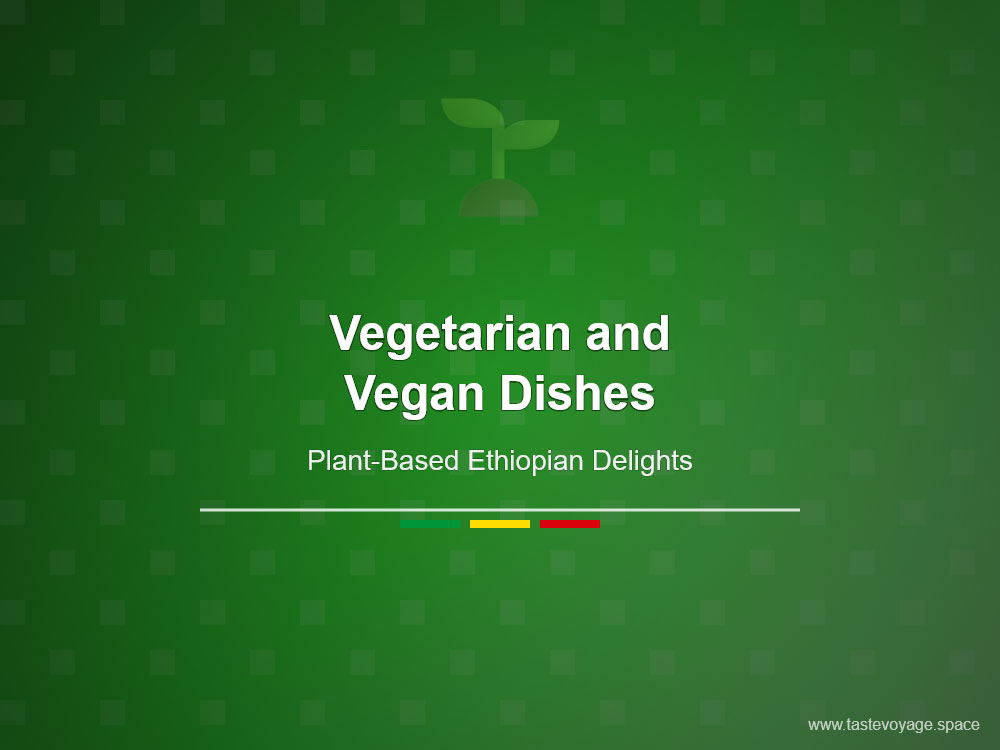Top Ethiopian Meatless Monday Recipes You’ll Love
Travel the World Through Food >> Ethiopian Cuisine>>Vegetarian and Vegan Dishes>> Top Ethiopian Meatless Monday Recipes You’ll Love
Top Ethiopian Meatless Monday Recipes You’ll Love
Best Ethiopian Meatless Monday Recipes: Celebrating Culinary Tradition and Cultural Heritage
Ethiopian Cuisine is renowned for its rich flavors, vibrant colors, and deep cultural significance. Among its many culinary treasures, meatless dishes hold a special place, especially on designated days dedicated to vegetarian meals. “Meatless Monday” in Ethiopia is more than just a health-conscious choice; it is an opportunity to connect with tradition, showcase plant-based ingredients, and honor centuries of culinary artistry.
Cultural Significance of Meatless Days in Ethiopia
In Ethiopia, certain days are set aside for vegetarian eating, rooted in spiritual practices and cultural rituals. These days often align with religious observances, such as fasting periods in Ethiopian Orthodox Christianity. During these times, communities come together to enjoy hearty, flavorful vegetarian foods that reflect the country’s rich agricultural bounty. These traditions foster a sense of unity, respect, and reverence for food as a gift from nature.
Meatless days emphasize the importance of vegetables, legumes, and grains in Ethiopian diets. They highlight the ingenuity of local cooks who create satisfying, flavorful dishes without animal products. This culinary approach showcases the versatility of Ethiopian ingredients and the skill of its chefs in turning humble components into memorable meals.
Culinary Significance of Ethiopian Meatless Recipes
Ethiopian meatless recipes are celebrated for their bold flavors and complex textures. They often feature staples such as lentils, chickpeas, split peas, and various vegetables. These ingredients are seasoned with unique blends of spices, including berbere, a fiery and aromatic spice mixture, and mitmita, a chili-based seasoning.
One of the most iconic dishes is Atakilt Wat, a fragrant stew made with potatoes, carrots, and cabbage simmered in a spiced tomato sauce. Another popular dish is Misir Wat, a hearty lentil stew enriched with spices and often served with injera, the traditional sourdough flatbread. These dishes exemplify the harmonious balance of flavors that define Ethiopian vegetarian cuisine.
The use of injera as both a staple and a serving vessel adds a distinctive touch. Its slightly sour taste complements the spicy, savory flavors of the dishes, creating a unique dining experience. Ethiopian vegetarian recipes are not just sustenance; they are a celebration of flavor, tradition, and cultural identity.
The Art of Ethiopian Vegetarian Cooking
Ethiopian vegetarian dishes embody more than nourishment; they represent a cultural narrative passed down through generations. The careful blend of spices and the artful presentation of dishes reflect the country’s rich culinary heritage. These recipes often involve slow cooking and layering of flavors, demonstrating patience and culinary craftsmanship.
Eating these meals often involves communal sharing, emphasizing togetherness and social bonds. The tradition of gathering around injera with friends and family fosters a sense of community that is central to Ethiopian food culture.
Embracing Ethiopian Meatless Recipes Today
Today, Ethiopian meatless recipes continue to inspire cooks worldwide. They offer a window into a culinary tradition that values plant-based ingredients and celebrates bold flavors. Whether observed during religious fasting or simply as a way to explore new tastes, these dishes invite everyone to appreciate Ethiopia’s rich culinary heritage.
By exploring these recipes, you can experience the cultural depth and culinary artistry of Ethiopia. They serve as a reminder that delicious, nutritious vegetarian meals can be both simple and profound, connecting us to a vibrant food culture rooted in tradition and community.
Ethiopian meatless Monday recipes are more than just meals—they are a culinary journey into a rich cultural landscape. They showcase the beauty of plant-based cooking and honor centuries of tradition. Embrace these dishes to celebrate Ethiopia’s vibrant food heritage and enjoy the flavors that have stood the test of time.
